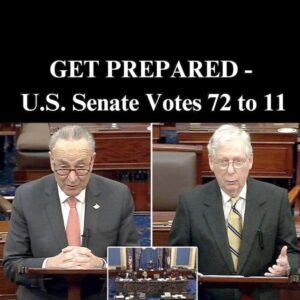Former National Security Advisor John Bolton has been indicted on 18 felony counts related to the alleged mishandling of classified materials from his time in the Trump administration, a development that has reignited debate over the Justice Department’s handling of politically sensitive cases.
Bolton, who served as national security adviser under former President Donald Trump from 2018 to 2019, faces 10 counts of unlawful retention of national defense information and eight counts of transmitting classified national defense material, according to a grand jury indictment unsealed Thursday.
He appeared in a Maryland federal court on Friday, where he surrendered to authorities and was expected to enter a plea of not guilty. The case, first reported by Just the News, marks the latest in a series of prosecutions involving current and former government officials accused of mishandling classified records.
Bolton Denies Wrongdoing
In a statement released after the indictment, Bolton denied the allegations and claimed the charges were politically motivated.
“I have become the latest target in the ongoing weaponization of the Justice Department,” Bolton said. “These charges either rehash claims that were previously dismissed or misrepresent the facts entirely. This is not about justice — it’s about politics.”
Bolton, long known as a fierce national security hawk and outspoken critic of both political parties, suggested that the case against him stems from his strained relationship with Trump. “It’s no secret that I’ve been critical of the former president,” he said. “But to use the Justice Department to pursue those criticisms through the courts is a dangerous precedent.”
Background of the Case
The indictment alleges that Bolton unlawfully retained sensitive materials after leaving the White House in September 2019. Prosecutors say the documents, which reportedly contained classified national defense information, were discovered during a review of his personal records.
Investigators claim Bolton also “transmitted or attempted to transmit” portions of the information to unauthorized individuals, though details of those interactions were not specified in the publicly released filing.
The Justice Department has not commented on the contents of the indictment, but legal experts note that the charges mirror those brought in previous cases involving the handling of classified information, including against former officials such as former President Donald Trump and President Biden’s former aides.
If convicted on all counts, Bolton could face decades in prison. However, analysts say the likelihood of such a severe outcome is slim, given his age, cooperation with investigators, and the complexity of proving intent in classified document cases.
A History of Tension with the Trump Administration
The indictment adds another chapter to Bolton’s long and often contentious relationship with Trump. After leaving the White House, Bolton became one of the former president’s most vocal critics, publishing a 2020 memoir titled The Room Where It Happened, which offered an unflattering portrayal of the Trump administration’s inner workings.
The Justice Department previously sought to block the book’s release, arguing that it contained classified material. Though a federal judge allowed publication to proceed, the court noted that Bolton may have “exposed himself to potential criminal liability” if he had indeed disclosed restricted information.
Trump has frequently criticized Bolton, describing him as “incompetent” and “a liar.” Following news of the indictment, Trump reportedly told allies that Bolton’s case “proves the system works,” according to one source familiar with his comments.
Legal Analysts Divided on the Charges
The announcement of charges against Bolton has drawn a mixed reaction from legal experts and political observers. Some argue the Justice Department is applying the law fairly and consistently, regardless of a defendant’s political affiliation. Others see the case as part of a troubling pattern of selective prosecution.
“On one hand, it’s important that officials at all levels — past or present — be held accountable for safeguarding classified information,” said constitutional law professor Elaine Marks. “But on the other, when prosecutions seem to disproportionately involve political figures, it fuels the perception that justice is being used as a political weapon.”
Critics of the Justice Department argue that the timing of the indictment — coming shortly before the 2026 midterm election cycle begins — could heighten public distrust in federal law enforcement.
Bolton’s Broader Political Legacy
Bolton, 76, has been a fixture in U.S. foreign policy circles for more than four decades. He previously served as U.S. ambassador to the United Nations under President George W. Bush and held senior roles in multiple Republican administrations. Known for his hawkish views on Iran, North Korea, and Russia, Bolton has long been a polarizing figure in Washington.
After leaving the Trump White House, he distanced himself from the Republican Party’s populist wing, aligning instead with traditional conservative foreign policy voices. He has also been an outspoken critic of isolationism within both major parties.
While Bolton has not held public office since 2019, he has remained active as a commentator and policy advocate, frequently appearing on television and writing op-eds warning of global threats to U.S. security.
What Happens Next
Bolton’s case will now move forward in federal court in Maryland, where pretrial hearings are expected to begin later this year. His legal team has indicated they plan to fight the charges aggressively and may challenge the classification of certain documents at the heart of the case.
If the court allows the defense to review and contest the government’s classification decisions, the case could evolve into a protracted legal battle — similar to those involving other former officials accused of mishandling sensitive materials.
For now, Bolton remains free on bond and continues to maintain his innocence. “I have faith that the truth will prevail,” he said in his statement. “This case is not about documents. It’s about power — and who gets to decide what dissent looks like in Washington.”
The Justice Department, meanwhile, has not issued further public comment beyond confirming the charges.
As the case unfolds, observers say it could have far-reaching implications for how future administrations handle the intersection of politics, security, and accountability — especially as questions continue to swirl around the handling of classified material by current and former officials across both parties.





